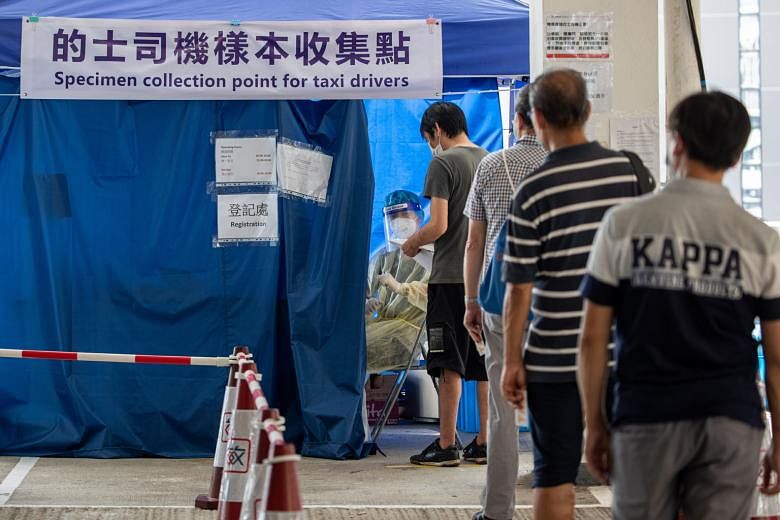With Hong Kong public hospitals' capacity for treating Covid-19 patients already over-stretched and testing facilities swamped, this could turn out to be a crucial week for the public health system.
Hospitals have moved to cut down on non-essential services and surgery as Covid-19 cases crossed the 2,000 mark yesterday, while two more people have died.
The Hospital Authority's chief manager for cluster performance, Mr Ian Cheung Tsz Fung, warned yesterday that 77 per cent of beds in isolation rooms are now occupied by patients in quarantine.
This means local hospitals are reaching the 80 per cent threshold for treating such patients.
The remaining 20 per cent is reserved for emergencies.
Each day in the past week, about 50 Covid-19 patients on average have been sent for quarantine in hospitals.
Speaking during an RTHK programme, Mr Cheung said the problem has been compounded by the fact that there are many elderly patients who suffer from chronic illnesses or require hospital stays.
The health authorities, in a daily briefing later yesterday, reported 61 new infections, bringing the total tally of confirmed cases in the city to 2,019, including 14 deaths.
Of the new cases, 58 were local, extending a trend that has alarmed officials and health experts.
Testing facilities and staff have been stretched, with the Centre for Health Protection issuing an apology early yesterday for mixing up the test results of two people.
Dr Leung Chi Chiu of the Hong Kong Medical Association told The Straits Times that the key factor now was to mobilise the community into staying at home as much as possible and as soon as possible.
"Now is the time for the private sector to follow the example of the government, to allow most of their employees to work at home and also for all residents to stay home as much as possible. This is the surest way of cutting the transmission links," Dr Leung said.
-
NEARING CAPACITY
-
77%
Proportion of beds in isolation rooms that are now occupied by patients in quarantine.
20%
Beds in isolation rooms reserved for emergencies.
He added that in doing so, the authorities could then trace key transmission routes and stop the spread of the virus.
When it was pointed out to him that Hong Kong is a densely populated city and many people share housing units with others, he insisted that transmission within a unit could be contained.
Dr Leung said that as long as individuals remained in their unit, it would be easy to detect and trace the source of infections. He also called for the stepping up of personal hygiene.
"Even if there is transmission within a single place, you can always track them down very quickly," said Dr Leung, who is chairman of the association's communicable diseases advisory committee.
Health experts in the city have pointed to lax border controls for foreign arrivals as one of the main reasons for the current wave of infections, noting that quarantine measures had not been as tight in the past two months as they could have been.
Government data showed that some 200,000 people received exemptions from the mandatory 14-day quarantine or tests between February and May.
They included air and sea crew, as well as those bringing food supplies into the city.
Earlier this month, incoming air and ship crew were tested for the virus but not quarantined.
But Dr Leung remained confident that the city would be able to come to grips with the problem.
"I'm sure that we will be able to contain the situation within a matter of weeks," he said, adding that he believes the city will be able to curb transmissions because of the high percentage of people who wear masks.


